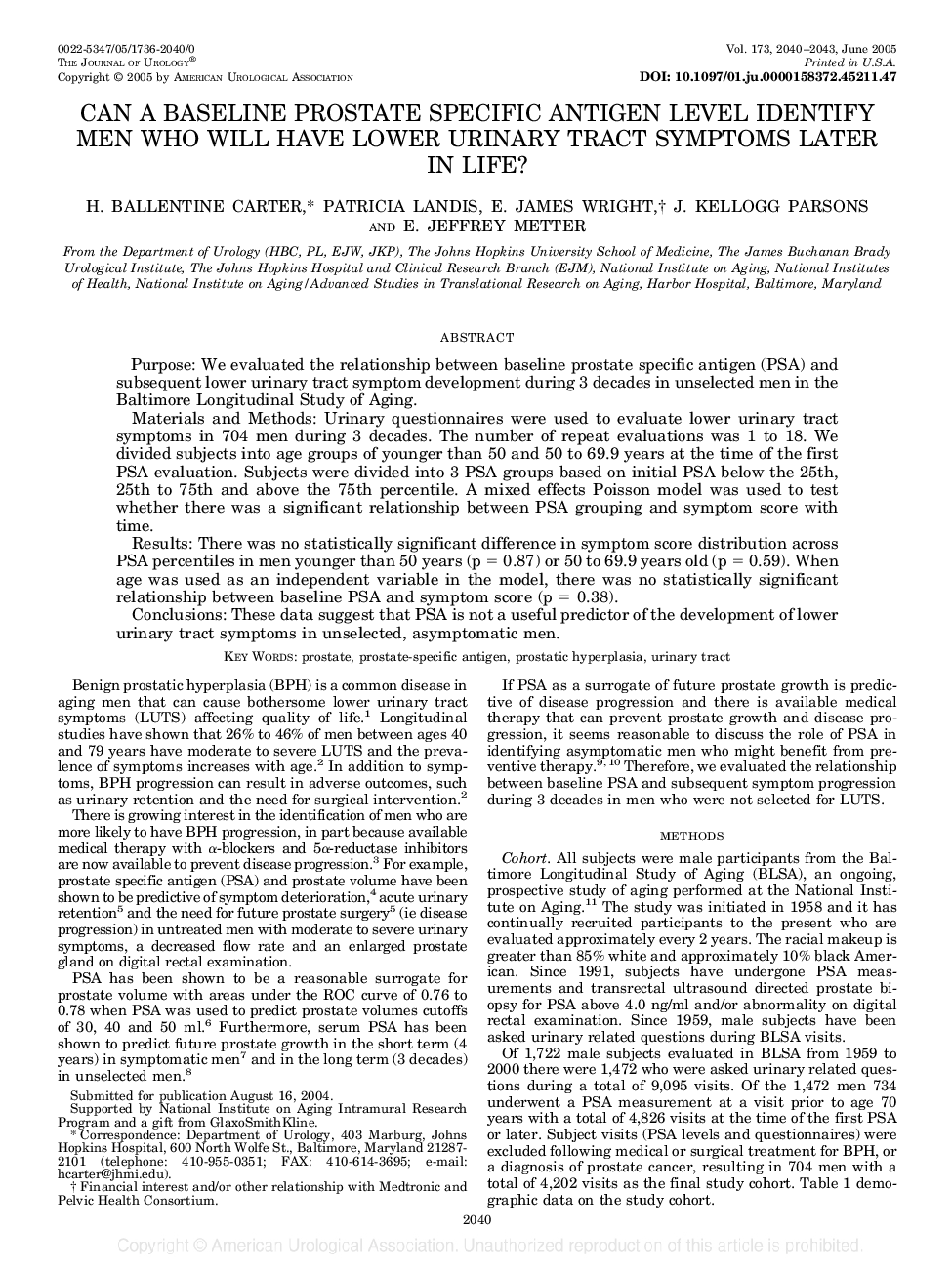| Article ID | Journal | Published Year | Pages | File Type |
|---|---|---|---|---|
| 3880750 | The Journal of Urology | 2005 | 4 Pages |
ABSTRACTPurpose:We evaluated the relationship between baseline prostate specific antigen (PSA) and subsequent lower urinary tract symptom development during 3 decades in unselected men in the Baltimore Longitudinal Study of Aging.Materials and Methods:Urinary questionnaires were used to evaluate lower urinary tract symptoms in 704 men during 3 decades. The number of repeat evaluations was 1 to 18. We divided subjects into age groups of younger than 50 and 50 to 69.9 years at the time of the first PSA evaluation. Subjects were divided into 3 PSA groups based on initial PSA below the 25th, 25th to 75th and above the 75th percentile. A mixed effects Poisson model was used to test whether there was a significant relationship between PSA grouping and symptom score with time.Results:There was no statistically significant difference in symptom score distribution across PSA percentiles in men younger than 50 years (p = 0.87) or 50 to 69.9 years old (p = 0.59). When age was used as an independent variable in the model, there was no statistically significant relationship between baseline PSA and symptom score (p = 0.38).Conclusions:These data suggest that PSA is not a useful predictor of the development of lower urinary tract symptoms in unselected, asymptomatic men.
